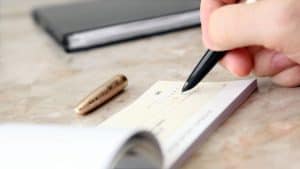 The Government is sitting on a pile of $166.2 million from uncashed cheques, dormant bank accounts and other forms of unclaimed money, the Inland Revenue Department says.
The Government is sitting on a pile of $166.2 million from uncashed cheques, dormant bank accounts and other forms of unclaimed money, the Inland Revenue Department says.
Banks have placed public notices warning that forms of money exchange like cheques they have stashed away for a rainy day for over six years will be transferred to the IRD on September 30 this year.
The IRD revealed to the Herald that there was a total pool of $166m of such funds, which were obtained under Unclaimed Money Act. Since July 2011, it had received $90.9m and refunded just $4.4m to claimants. The IRD was unable to provide further details.
The act requires banks to hand over un-presented bank cheques, travellers’ cheques, foreign currency drafts and other forms of money issued between June 1, 2010, and May 31, 2011.
It also includes non-interest earning bank accounts that have been untouched for six years, as well as interest-earning accounts left dormant for 25 years.
A Westpac spokesman said it was difficult to provide accurate figures on how much money the bank returned to the IRD each year, or what forms it usually took.
However, he estimated that between 200 and 300 unpresented bank cheques or drafts were handed over each year, with an average value of about $1000.
The bank wanted to notify people who may have unclaimed bank cheques, travellers’ cheques and foreign currency drafts.
“The reason for that is we are usually able to contact holders of long-dormant accounts, whereas a bank cheque or draft will typically have been bought by one person to provide to someone else so we won’t know who holds it,” he said.
A Kiwibank spokesman said there could be significant variation in the value of bank cheques, but the average worth in the past 12 months was $200 and there were 30 that were declared no longer valid during this period.
If the value of a cheque or balance of a dormant bank account was $100 or greater and there was a valid address for the customer, they were sent a letter and advised what they were owed, he said.
An ANZ spokesman said the bank also made payments under the act for unknown deposits made to branches, unpresented insurance claims, cheques in its insurance business, unpresented cheques made out to suppliers and international transfers of funds that had bounced because of incorrect account details.
“In addition we may have other one-offs each year,” the spokesman said.
The banks could only speculate as to why this money would go unclaimed.
The ANZ spokesman said with inactive accounts it was most likely that the holder had died or moved overseas and was uncontactable.
With the likes of cheques, they had probably been lost or misplaced, then forgotten about.
A BNZ spokeswoman said: “After a quick anecdotal poll around the office there were comments about people losing the cheques, or the amount being too low for them to feel it was worth it,” she said.
All the banks contacted by the Herald strongly encouraged people to think about any cheques or forms of money they may have forgotten about or accounts they had not touched for a few years.
The Westpac spokesman said people could contact their own bank if they felt they had not received a cheque they were owed, or if they wanted to check they held a bank account they may have forgotten about.
Even after the money is transferred to the IRD, the owner can still claim the funds, with proper identification.

